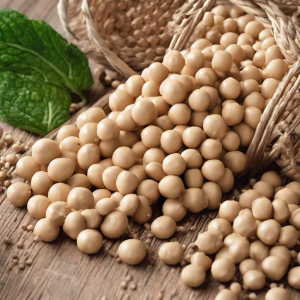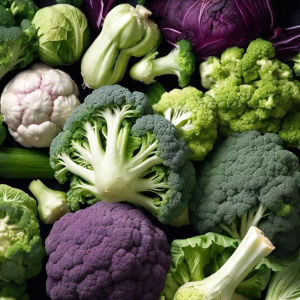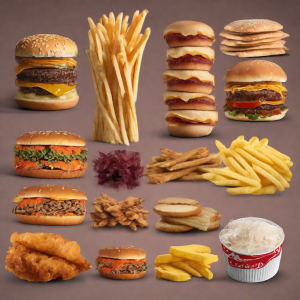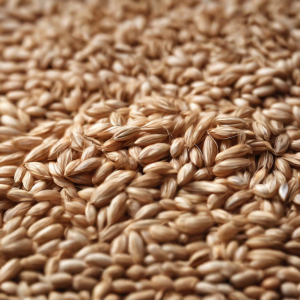7 Worst Foods For Thyroid Disease

The thyroid gland is a small, butterfly-shaped organ that plays a huge role in regulating metabolism, energy, appetite, sleep, mood, and more. Hypothyroidism and hyperthyroidism are two common disorders that impact the thyroid. The foods you eat can greatly affect the health of your thyroid. Some nutrients help support healthy thyroid function, while other compounds can suppress thyroid function and worsen symptoms. Here are 7 of the worst foods to avoid with thyroid disease.
Soy Foods
Soy foods like tofu, edamame, tempeh and soy milk contain goitrogens, compounds that can interfere with thyroid function by blocking iodine absorption. Iodine is crucial for making thyroid hormones. Eating high amounts of uncooked or processed soy can worsen hypothyroidism by inhibiting thyroid peroxidase, an enzyme needed for hormones. Limit soy to 1-2 servings per day, avoid soy supplements and choose fermented forms like miso for easier digestion.

Cruciferous Vegetables
Like soy, cruciferous vegetables such as broccoli, cauliflower, cabbage, kale and Brussels sprouts contain goitrogens that impact thyroid function. However, when cooked for 3-5 minutes, the goitrogenic effect is diminished. Avoid over-consumption of raw cruciferous veggies if you have hypothyroidism. Moderate portions of cooked cruciferous vegetables should not be an issue for most people with thyroid disease.
Gluten
A protein called gluten found in wheat, barley and rye can trigger autoimmune responses and inflammation that exacerbate Hashimoto’s thyroiditis. Many with this autoimmune hypothyroid disease are sensitive to gluten. Going gluten-free may help improve thyroid antibodies and symptoms like fatigue, bloating, and joint pain. Avoid foods high in gluten like bread, pasta, cereals, beer, etc. Read labels carefully.

Caffeine
Excess caffeine taxes the thyroid, causing increased cortisol production which worsens symptoms of anxiety, trouble sleeping, and fatigue. Caffeine also interferes with absorption of thyroid medications. Keep coffee and caffeinated tea to 1-2 cups per day maximum if you have a thyroid disorder, or consider eliminating caffeine altogether. Decaf coffee and herbal tea are healthier alternatives.
Sugar
Foods high in sugar like soda, candy, syrup, desserts and refined carbs put stress on the thyroid. The hormone insulin is needed to manage blood sugar levels. Overconsumption of sugar causes insulin spikes and crashes which strain the thyroid. Sugar also provokes inflammation and depresses immune function. Limit sweets and choose whole, complex carbs to keep blood sugar under control.

Alcohol
Drinking too much alcohol worsens thyroid symptoms like weight gain, fatigue, anxiety, insomnia and gut inflammation. Alcohol consumption diminishes absorption of thyroid hormones while provoking autoimmunity and depleting nutrients that support thyroid function. Limit alcoholic drinks to special occasions or avoid altogether. Focus on replenishing nutrients and controlling symptoms through diet instead.
Fluoride and Chlorine
Fluoride and chlorine found in drinking water, dental products, produce, and some foods can inhibit thyroid function. These halides displace iodine and interfere with thyroid hormone synthesis. Use a high-quality water filter to remove fluoride and chlorine from your drinking water to support healthy thyroid function. Check sources of water used for produce as well.

Fatty Foods
Diets high in saturated fats and trans fats create inflammation and reduce blood flow which can suppress thyroid function. Sources of unhealthy fats include red meat, dairy, fried foods, fast foods, packaged snacks, and baked goods made with lard or shortening. Limit intake of high-fat foods and emphasize healthy fats from olive oil, nuts, avocado, and oily fish instead.
Processed Foods
Heavily processed convenience foods tend to be packed with refined carbs, inflammatory vegetable oils, additives, sugar, and preservatives that put strain on your thyroid function. Processed foods also lack the essential vitamins, minerals, and nutrients that are vital for hormone production. Moreover, packaged foods often contain hidden gluten and soy. Focus your diet on unprocessed whole foods instead.

Grains with Phytic Acid
Whole grains and legumes that haven’t been soaked or sprouted contain phytic acid which blocks absorption of key minerals like iodine and selenium that your thyroid needs. Overconsumption of foods high in phytic acid like bread, cereals, corn, quinoa, beans and nuts could worsen hormone deficiency. Soak, sprout or ferment grains and legumes regularly to reduce phytic acid content.
Conclusion
Managing thyroid disease requires a nutrient-dense diet free of foods that tax the thyroid or interfere with hormone production. Avoiding soy, gluten, sugar, alcohol, caffeine, fluoride, chlorine, phytic acid, and excess saturated fats enables proper thyroid function and balanced energy levels. Focus on quality proteins, healthy fats, soaked grains, leafy greens, antioxidant fruits and supplementing key nutrients instead to nourish your thyroid back to health.